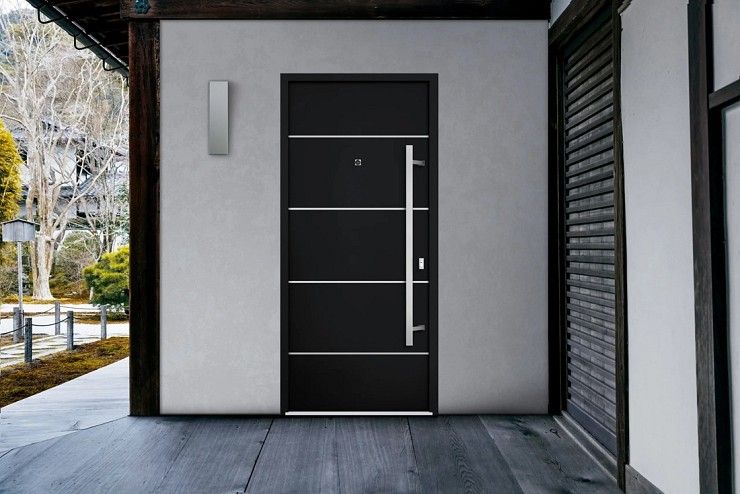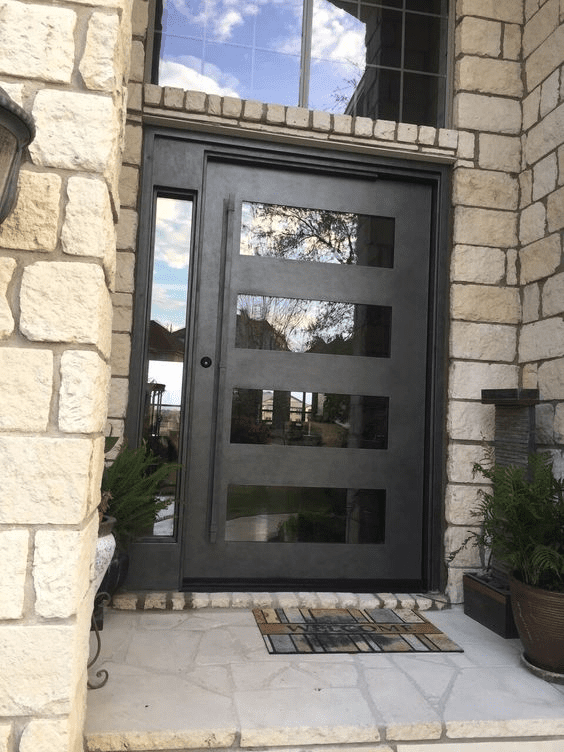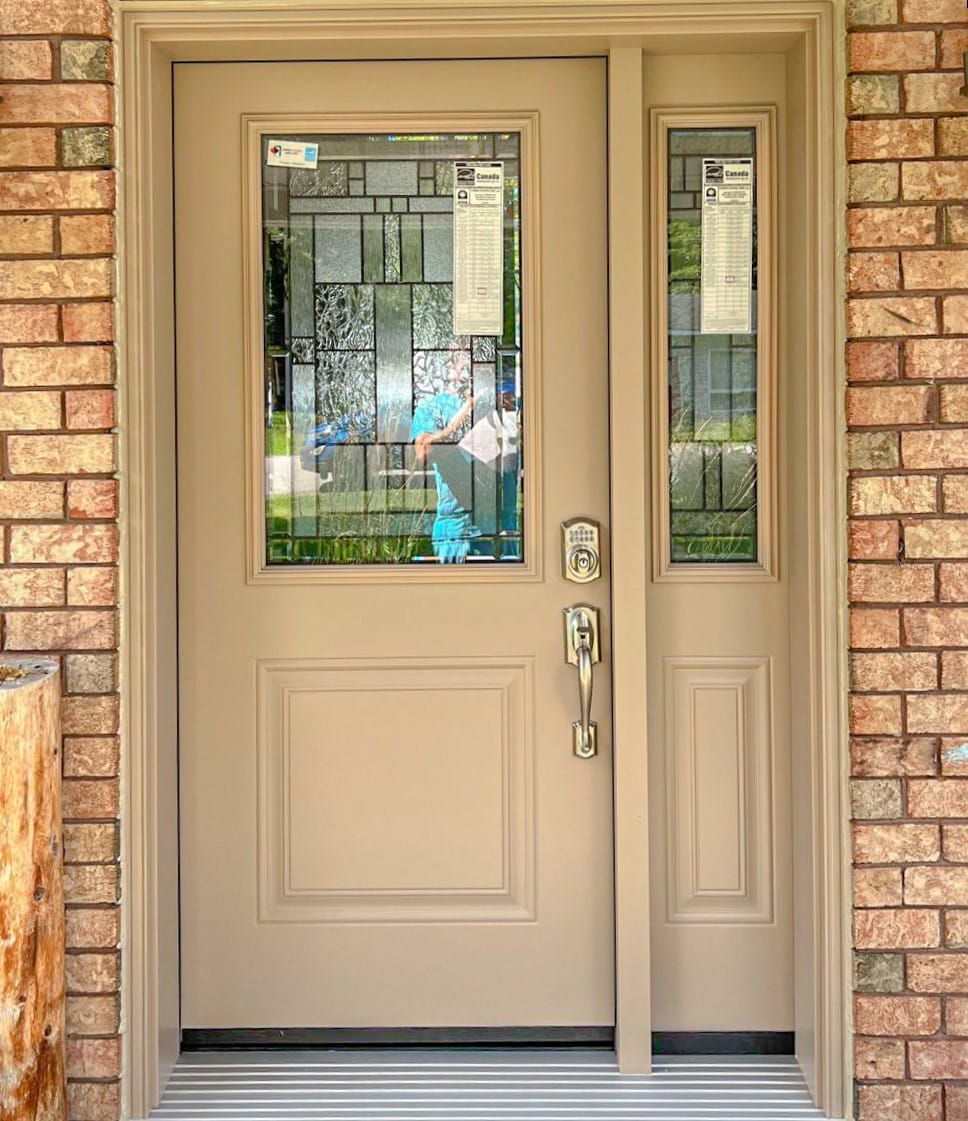What “Fire-Resistant” & “Warp-Resistant” Really Mean for Steel Doors

Thinking about upgrading to a steel door?
Many homeowners ask us if they should choose a "fire-resistant" or "warp-resistant" option. These terms sound strong. But what do they actually mean?
Let’s go through each one. I’ll explain how they work, where they matter, and what to look out for. If you're in Toronto or nearby, this will help you choose a door that lasts through every season.
What is a Fire-Resistant Steel Door?
First, no door is fireproof. Not even steel. But some are built to resist fire for a limited amount of time.
A fire-resistant door can slow down the spread of flames and smoke. Most are rated for 20, 45, 60, or 90 minutes. That means the door will hold up for that long during a fire, giving people time to escape and firefighters time to respond.
These doors have a steel exterior, but the real protection comes from the core. It’s often filled with mineral-based material that doesn't burn easily. They also use intumescent seals around the edges. These seals expand under heat to block smoke and flames.
If you need a fire-rated door, check for a label. Certified doors are tested and stamped by organizations like Intertek or UL. Without that label, it’s just a regular door.
When Do You Need One?

In many homes, fire-rated doors are required between an attached garage and the house. That’s where fire is more likely to start.
If you live in a multi-unit building, fire codes often require them at unit entries or stairwells. But for a front door on a single-family home? It’s usually optional, unless your builder or inspector says otherwise.
Still, some homeowners choose them for extra peace of mind. Especially in dense neighborhoods where homes are close together.
What Makes a Steel Door Warp-Resistant?
A common concern with any door is warping. This happens when the door bends or twists out of shape. It usually happens because of moisture, temperature changes, or direct sunlight.
Steel doors are more resistant to this problem than wood. But not all steel doors are equal. The secret is in the way they’re built.
A high-quality steel door has a reinforced core. This core can be made of foam or steel-reinforced material. It gives the door strength and shape. The edges and corners are also reinforced to stay straight over time.
The skins of the door (the outside layers) are bonded tightly to the core. If this bond fails, the door can still warp; even if it's made of steel.
Good steel doors also include multi-point locks and stiffeners inside. These reduce stress on the door and keep it straight over the years.
Why Warping Happens and Where It’s Common

Warping is more likely in areas with extreme weather. In the Toronto area, we deal with both hot summers and freezing winters. That puts pressure on any exterior door.
South- or west-facing doors are especially at risk. The sun hits them directly, which heats one side more than the other. Over time, that uneven heat can cause the door to bend.
Warping can also happen in moisture-heavy areas, like basements or utility rooms. If the door doesn’t have a moisture-resistant core, it can absorb water and lose its shape.
Homes without a covered entryway or storm door are more exposed to these risks. If your front door takes a lot of weather: sun, rain, or snow, warp resistance is very important.
What Fire and Warp Resistance Don’t Guarantee
It’s important to be clear: these features are not all-purpose guarantees.
A fire-resistant door doesn’t mean your entire home is fireproof. It simply delays fire spread, giving you more time to react. Also, the frame, hinges, and hardware all need to be fire-rated for the door to work as intended.
Similarly, a warp-resistant door is less likely to bend, but not immune. If it’s poorly installed, doesn’t fit the frame well, or lacks proper sealing, warping can still happen.
You also need to check the warranty. Some warranties don’t cover warping if the door is exposed to full sunlight for long hours. Others may require that you install a storm door or covered porch for full protection. You can check our lifetime warranty: which covers everything.
That’s why choosing the right product is only half the solution. The installation matters just as much.
Questions to Ask Before Buying
Before you choose a steel door, ask a few key questions. These will help you avoid poor-quality products and make sure you’re getting the performance you need.
1. Is it certified fire-rated?
If you’re looking for fire protection, ask for the label. It should be certified by Intertek, UL, or WH (Warnock Hersey). No label means no guaranteed fire rating.
2. What kind of core does it have?
A solid or insulated core adds both fire and warp resistance. Ask if the core is mineral-based, steel-reinforced, or foam-insulated. Cheap honeycomb cores won’t give you the same performance.
3. Is the frame included and prehung?
Fire-rated doors need a matching fire-rated frame. For best results, buy a prehung unit where the door and frame are built and tested together.
4. Does it use multi-point locking?
Multi-point locks help keep the door stable and sealed at multiple points. This reduces stress on the edges and helps prevent warping over time.
5. Is the door rated for energy efficiency?
If you care about insulation and comfort, ask for the U-factor and R-value. A good steel door should have foam insulation and weatherstripping included.
6. What does the warranty cover?
Check if the warranty includes warping, especially for sun-facing installations. Some manufacturers require a storm door or overhang to honor their warranty.
Our Steel Door Recommendations
At Delco, we work with steel doors that are built for Canadian conditions. We only recommend products that we’ve tested and installed ourselves in real GTA homes.
If you’re looking for a fire-rated steel door, we offer models with 20-minute to 90-minute ratings. These are fully labeled, certified, and come with matching fire-rated frames. They're perfect for garages, utility rooms, and multi-family buildings.
For warp-resistant doors, we recommend options with insulated steel cores, heavy-duty edge construction, and multi-point locks. These are ideal for homes that get direct sun or weather exposure.
Many of our steel doors also come with energy-efficient glass inserts, decorative options, and custom sizes. We’ll help you pick one that fits your space, budget, and building code requirements.
Want to see examples or get a quote?
Contact us or browse our Steel Doors section.











